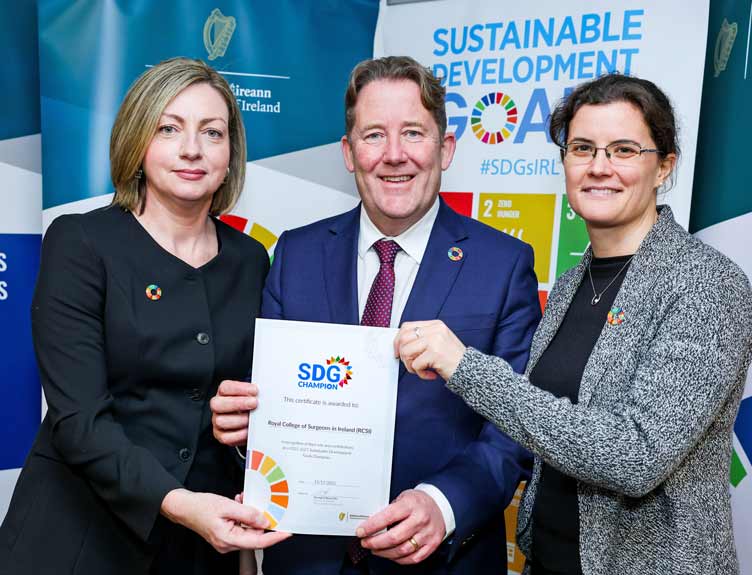RCSI research seeks to identify alternative healthcare structures to manage pressure ulcers

RCSI researchers, alongside researchers from the University of Manchester, have reviewed alternative ways of organising health services in order to determine appropriate pressure ulcer treatment and prevention measures.
Pressure ulcers, otherwise known as bedsores, are injuries to the skin and/or the underlying tissue that are caused by prolonged pressure being placed on the more bony areas of the body, such as the hips and shoulder blades. These types of wounds are common and costly, negatively affecting both patients and health care systems globally – it costs the HSE an estimated €119,000 to treat just one Grade 4 pressure ulcer.
It is thought that the way in which health services are organised can affect the chances of bedsores developing for those already at risk. The research, published by the Cochrane Database of Systematic Reviews, looked at alternative methods of delivering care by analysing the data recovered from four clinical trials, totalling 499 participants.
One trial looked at ‘transmural care’, a model of health service delivery that engages patients and family members in activities, supporting them and promoting long-term care. Another explored the impact of ‘hospital-in-the-home’ care, which is focused treatment by healthcare professionals in a patient’s home rather than in hospital. The remaining studies compared standard care to care provided by a team of professionals within different areas of healthcare.
“While the results remain largely unclear, this is due to a lack of in-depth research into alternative health service organisation. This should be a focus for future research studies, as the cost of pressure ulcer treatment and prevention to healthcare services both nationally and internationally needs to be addressed,” said Prof. Pauline Joyce, Academic Director of the MSc Physician Associate Studies at RCSI.
The review was led by researchers from RCSI’s School of Medicine and School of Nursing & Midwifery, in collaboration with the Division of Nursing, Midwifery & Social Work at the University of Manchester.
RCSI is ranked among the top 250 (top 2%) of universities worldwide in the Times Higher Education World University Rankings (2019) and its research is ranked first in Ireland for citations. It is an international not-for-profit health sciences institution, with its headquarters in Dublin, focused on education and research to drive improvements in human health worldwide. RCSI has been awarded Athena SWAN Bronze accreditation for positive gender practice in higher education.



